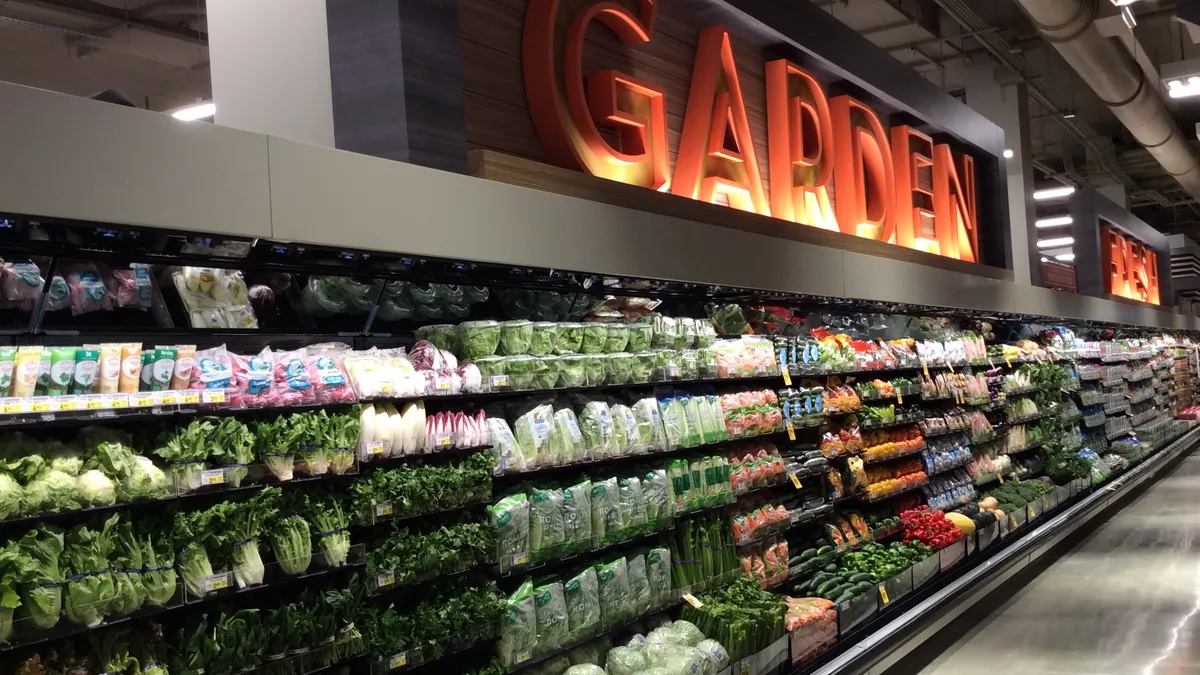Dive Brief:
- Ongoing concern among consumers about the state of the economy and their personal finances is likely to persist as a top driver of grocery-shopping behavior for the next 30 years, according to research released Wednesday by data analytics firm Dunnhumby.
- Lidl, Food 4 Less, Aldi, Costco, Kroger-owned Fry’s, Amazon, BJ’s Wholesale Club, H-E-B, Shoprite and WinCo are the best-positioned grocery chains to benefit from the trend, known as fiscal conservatism, Dunnhumby said.
- The findings indicate that grocers will need to continue running and implementing the value-focused strategies that they’ve employed amid record-high inflation for more than a year now.
Dive Insight:
Dunnhumby’s conclusion that people’s worries about money will set the pace for the grocery industry for decades to come stems from an analysis of more than 70,000 survey responses the firm collected for its Retail Preference Index.
The data, collected between 2017 and 2022, revealed that price is a key consideration for most people when they buy groceries, regardless of how much money they make. Other factors, like health and sustainability, compete with cost as a top source of stress only for shoppers whose incomes top $150,000, Dunnhumby found in producing the study, “Grocery 2053: A Data-Driven Gaze into The Future.”
Dunnhumby said that not only were shoppers in Generations Y and Z more deeply impacted by the COVID-19 pandemic and the Great Recession of 2008-2010, but that they will be central to the development of the grocery market during the coming years.
In addition, while 80% of grocery shoppers across all age groups want to buy healthy foods, 60% cite cost as an obstacle. Twenty-nine percent said trying to buy products that reflect their health goals is a “big source of stress,” and just 40% said cost was not an impediment in selecting healthy items.
Harris Teeter, Wegmans, Publix and Sprouts Farmers Market are among the retailers whose market share is most vulnerable to fiscal conservatism over the next 30 years, according to Dunnhumby. Overall, Amazon, H-E-B, Costco, Sam’s Club and Walmart are best positioned to take advantage of the trend between now and 2053, when Dunnhumby expects the U.S. grocery retail industry to hit $1.9 trillion in sales, more than twice its size today.
Dunnhumby indicated that its conclusion that cost concerns will drive grocery shopping behavior long into the future should put food retailers associated with a heavy focus on value in a strong position to grab market share.
“This doesn’t mean that specialty and premium grocers are doomed to see their share slowly decline [over] the next few decades. It just means they need to carefully select their store locations, keep their eye on value whenever possible, and differentiate their assortment and experience enough from other premium retailers,” Dunnhumby said in the report.













